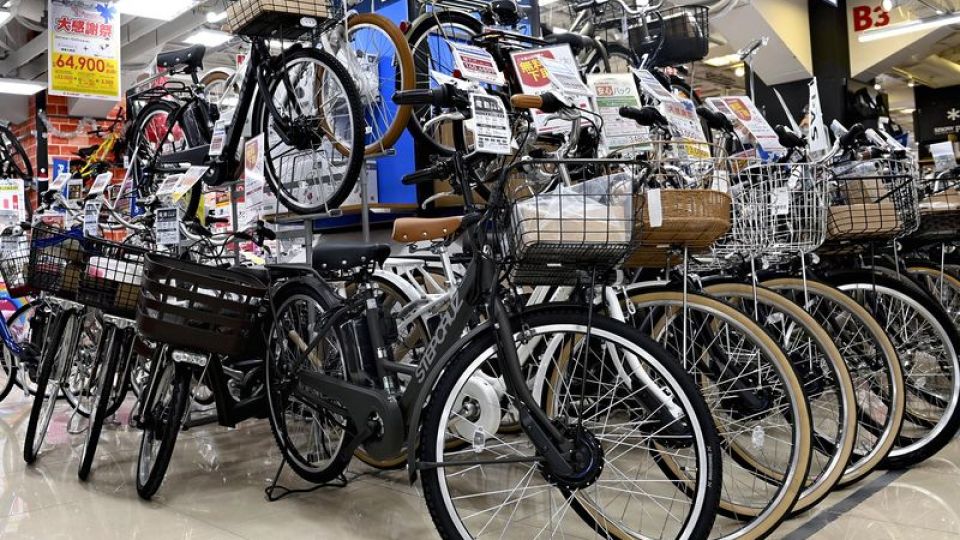January 25, 2022
TOKYO – Prices are on the rise for power-assisted bicycles, which are becoming fixtures as a means of transportation in everyday life.
This is not only because they have become increasingly popular during the COVID-19 pandemic as a means to get around while avoiding trains and buses crowded with commuters, but also because there have been global shortages of raw materials, parts and components.
Although battery-powered bicycles have drawn a lot of attention as “a winning product” because of their growing sales during the pandemic, price hikes cast a shadow over their future success in the market.
Power-assisted bikes make up a section at a retailer in central Tokyo, where models boasting energy-saving functions and lightweight features are on display.
The retailer said there has been an increase in consumers who say, “I don’t want to commute on crowded trains,” and purchase the bikes to travel to work.
But popular models, on which a child seat can be fitted, have shot up in price by about 10% since last year, to as high as about ¥150,000.
“There’s a likelihood that the number of people who shy away from buying one after seeing the price tag will increase,” the shop clerk in charge said, expressing concern.
Bridgestone Cycle Corp. embarked on a price hike of such bikes ranging from 2% to 5% in October last year, the first such jump in about three years. Yamaha Motor Co. this month also raised prices on its five models designed for commutes to work or school by a range of 2% to 6%. It also plans to raise the price of its new models, which are now set to hit the market, by around 5%.
A backdrop to the price hike is the increase in prices of raw materials, including aluminum and steel, the demand for which has grown amid an economic turnaround in such countries as the United States and China.
In particular, the price of aluminum has been affected by a production drop amid a power shortage in China, and political upheaval in autumn last year in Guinea, a country in West Africa that produces raw materials for the bikes.
Lockdowns — closing off cities and businesses — in Southeast Asia and elsewhere have also had an adverse affect.
Shimano Inc., a leading manufacturer of parts and bicycle components, had operations at its Malaysia plant, which produces brakes and derailleurs, temporarily suspended.
The sales of bikes have also been rising in regions such as Europe. Semiconductors — one of the key components of the bikes — have become a resource over which, according to an official at Yamaha Motor, with the bike makers having a tug-of-war, as part of the impact of the global shortage.
Electric bikes are highly popular as they make it easier to travel uphill. According to data released by the Economy, Trade and Industry Ministry, shipments of electric bicycles from January to October last year totaled 668,402 units, up 9.3% from the corresponding period a year earlier.
Yet, Teikoku Databank Ltd. has noted, “The price hikes might weaken demand for repeat purchases of the bikes, thus turning their sales downward.”

